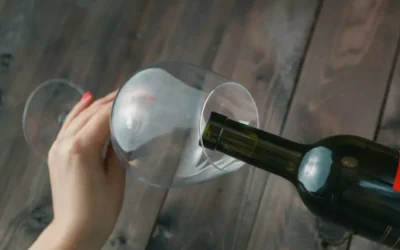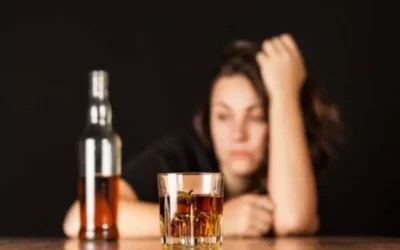Content
This can increase your BAC significantly if you don’t replenish your body’s supply with a few sips of water as you drink. After you take a drink, both the liquid and alcohol contents of the beverage pass through your stomach lining and small intestine into the bloodstream. So what can you do to make sure you don’t get that infamous hangover headache caused by dehydration?
- Everyone’s tolerance to alcohol is different, and it’s important to know and respect your own limits.
- One beer is considered to be a 12-ounce beer, with 5 percent alcohol content, per the Centers for Disease Control and Prevention.
- When consumed in large quantities, alcohol has a dehydrating effect on the body.
- There is a lot of speculation that low alcohol beer may be as effective as an isotonic drink when it comes to recovery from exercise.
If you don’t have access to a supply of vitamin C, you’ll begin to show signs of scurvy in two or three months and die within six months. However, the studies suggesting this effect on vasopressin are quite old [8][9], so we’ve taken a look at some of the latest evidence to see if modern technology can confirm the theory. Take the quiz below to find the best Hydrant for your hydration routine. We’ve reviewed the latest research to find out whether beer can help you hydrate. Though all liquids can help you meet your fluid needs, some may be more hydrating than others.
Does alcohol cause dehydration?
Don’t make the mistake of thinking alcoholic beverages equal hydration because they’re a fluid, says Zumpano. Drinks with a higher alcohol content — and therefore more potential to dry you out — include vodka, gin, rum, and whisky. Beer and wines, meanwhile, tend to have lower alcohol content, though fortified wines like sherry and Madeira pack a kick at above 14.5% alcohol. You probably know dehydration as what happens to our bodies when we don’t take in enough fluids.

We talk about the Medieval period as if it was a decade in England. A couple of incidences of people talking about water drinking may not represent the entirety of Medieval people. The more muscles you have, the higher the metabolism and the more water you are able to hold. This is why your metabolic rate is a good indicator of just how much water you should be drinking.
Space out your drinks
If you want to stay hydrated, you should avoid drinking higher-alcohol-percentage wines or spirits. When hydrated for more than 4 hours, drinking milk and oral rehydration is preferable. It does not appear that drinking too much beer will make you more dehydrated, but it does appear that drinking too much will increase your urine output in a person who is well-hydrated. Diuresis can be caused by alcohol by activating the hormone vasopressin, which regulates how well hydrated you are after exercising and drinking. Researchers discovered that adding sodium to beer has a diuretic effect on drinkers. That makes beer the clear contender as the least dehydrating, with a big caveat.
The Centers for Disease Control and Prevention (CDC) defines moderate drinking as up to one drink per day for women and up to two drinks per day for men. Muscle recovery and growth are critical for athletes to improve their performance. The process of building muscle is largely dependent on protein synthesis and the replenishment of energy stores in muscle cells. Alcohol consumption can interfere https://ecosoberhouse.com/ with these processes, leading to impaired muscle recovery and growth. Finally, chronic alcohol use can result in more severe damage to the digestive tract, leading to conditions such as gastritis or pancreatitis, which further hinder nutrient digestion and absorption. Over time, this can lead to malnutrition, affecting overall health, immune function, and the body’s ability to repair itself.
Alcohol and Dehydration: Does Alcohol Dehydrate You?
The idea that people in Medieval times were drinking beer instead of water seems to be a fallacy. But “small beer” and other weak variations may have been popular due to their nutrition and guarantee of sanitation. On the whole, it would be fair to say that alcohol does not hydrate you.

Many people underestimate the amount of alcohol they consume because they are not aware of standard drink sizes. For reference, a standard drink in the U.S. is considered to be 14 grams (0.6 ounces) of pure alcohol, which is found in 12 ounces of regular beer, 5 ounces of does alcohol dehydrate you wine, or 1.5 ounces of distilled spirits. Given the negative impacts of alcohol on muscle recovery and rehydration, it’s advisable to avoid alcohol consumption immediately after exercise. Additionally, making changes to the diet to replace dehydrating drinks may help.
Tips to avoid dehydration
You can also expect a bad hangover and memory loss after a night out binging on beer (11). If you are proud of your slim waistline, it is time you quit drinking beer or at least bring down your consumption. Gulping down kegs of beer is only going to give you a beer belly—remember beer bellies are stubborn and really difficult to get rid of (3). Dehydration is when the body does not have sufficient amounts of fluid to function effectively. This happens when a person loses more fluids than they take in.

For this reason, a person should drink alcohol in moderation and avoid binge-drinking or chronic heavy drinking. Alcohol by volume (ABV) is used to compare the alcohol content of different drinks. Most beers have a fairly low ABV, somewhere between 2% and 6% (with some beers such as stouts reaching 10%, similar to most wines). The amount of alcohol in beer is thought to determine its diuretic effect, and therefore how much it can dehydrate you. Alcoholic beverages, including beer, wine, and liquor, can change your body’s fluid balance by reducing the secretion of vasopressin, a hormone involved in the regulation of urine output (6, 7, 8, 9). You should also limit your soda and caffeine intake to reduce dehydration symptoms.
Food is also a great way to get the body back to its normal state. Sleep has also been shown to relieve you from exhaustion caused by dehydration. Alcohol dehydration is when alcohol enters the bloodstream and starts to break down the water throughout the body. The fluid is withdrawn, causing numerous symptoms ranging from moderate to severe. This is why it is very important to drink water when having an alcoholic beverage and to not drink on an empty stomach. Drinking a lot of low-alcohol drinks can also add up to a very thirsty evening, though.
While having a beer alone won’t necessarily dehydrate you, drinking too much beer in one sitting may cause dehydration. Combining the excess liquid with the fact your kidneys are working harder to filter it out is going to leave you feeling thirsty. In addition, any drink that increases urination (i.e., a diuretic) will leave you feeling a little more dehydrated after losing excessive amounts of fluid. It’s this form of alcohol that provides most of the health benefits from alcoholic beverages, as long as you’re drinking in moderation, per the Harvard T.H. Chan School of Public Health. Other than small differences, beer and hard liquor provide about the same health benefits, so it’s not really about beer vs. liquor or vodka vs. beer. Some studies have shown that drinking beer can actually be good for the heart, but that happens when you drink in limited amounts.




